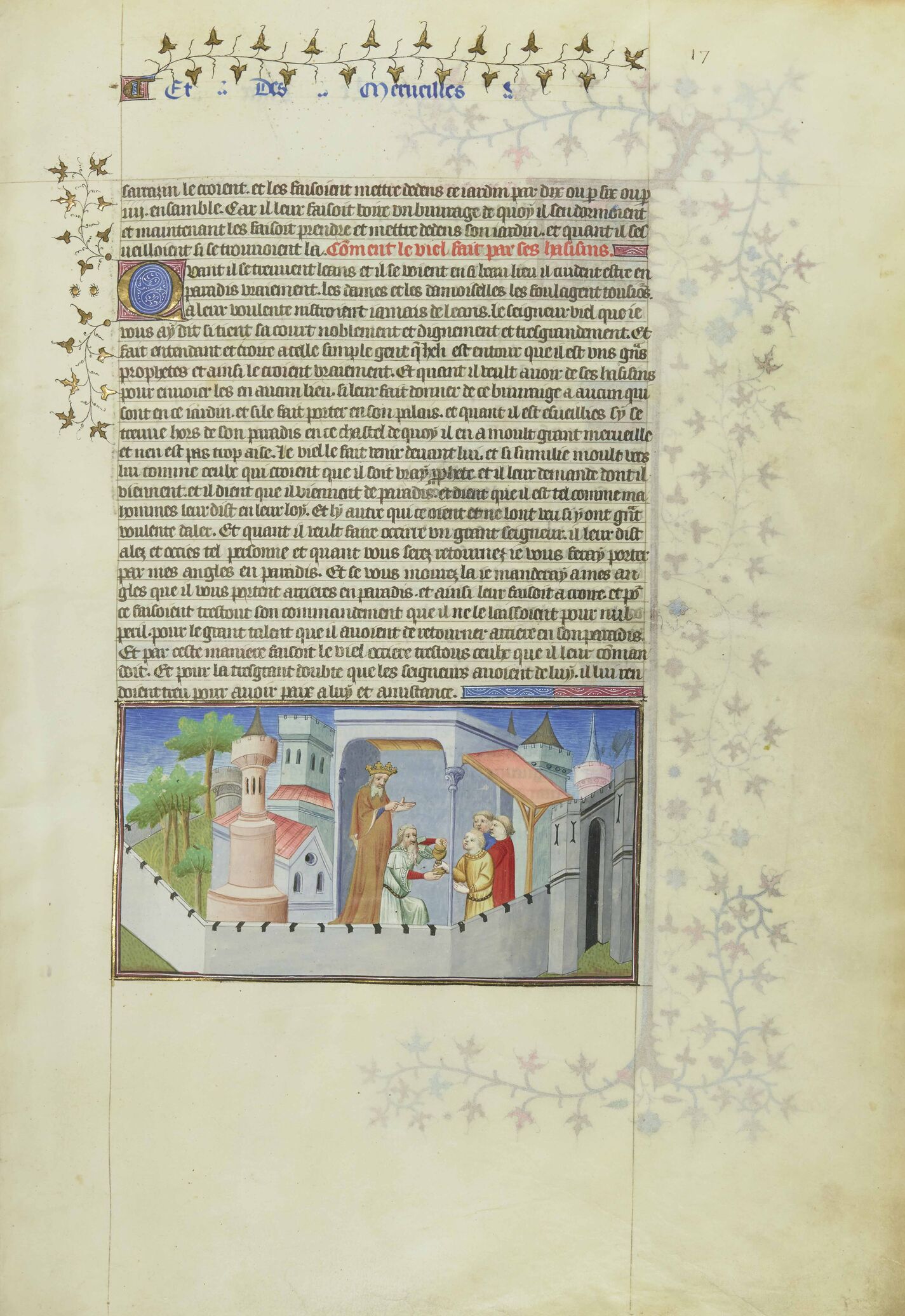XLII. The Valley of the Old Man of the Mountain and His Assassins
This story is told as Marco Polo knew it. It tells of Mulecto, a region where, in ancient times, an evil lord called Aloadín, better known as the Old Man of the Mountain, is said to have lived.
Aloadín ordered the construction of a vast garden between two mountains, surrounded by enormous palaces of gold. In it lived the most beautiful ladies and young people, all skilled in the arts of music, singing, and dancing. The garden was filled with unimaginable pleasures: rivers of wine, milk, water, and honey, as well as an endless variety of exotic fruits.
The Old Man of the Mountain made the young people believe that his garden was the true paradise. To do this, he gave them a spleeping potion, and while they slept, he transported them to that Eden. When they awoke, they enjoyed its luxuries for four days, until they were brought back to him. It was then that Aloadín imposed a single condition for their return: they had to kill his enemies. He promised that, if they did so, they could return to paradise, either alive or dead. Dazed on the experience, the young men did not hesitate to obey, hoping for their return to the false Eden.
Thus, the Old Man of the Mountain eliminated his enemies, to the point that even the neighboring lords preferred to pay for his friendship rather than confront him.
Over time, the fame of his deadly army reached the ears of the Lord of the Tartars of the East, who sent one of his barons with a powerful army to destroy him. Aloadín's fortress withstood the siege for three years, protected by its impenetrable walls. However, hunger eventually overcame the defenders, and the Old Man of the Mountain, along with his fearsome assassins, was defeated.
His death ensured that no other garden like that would ever exist again, nor would the cruelties of the Old Man of the Mountain be repeated.

XLII. The Valley of the Old Man of the Mountain and His Assassins
This story is told as Marco Polo knew it. It tells of Mulecto, a region where, in ancient times, an evil lord called Aloadín, better known as the Old Man of the Mountain, is said to have lived.
Aloadín ordered the construction of a vast garden between two mountains, surrounded by enormous palaces of gold. In it lived the most beautiful ladies and young people, all skilled in the arts of music, singing, and dancing. The garden was filled with unimaginable pleasures: rivers of wine, milk, water, and honey, as well as an endless variety of exotic fruits.
The Old Man of the Mountain made the young people believe that his garden was the true paradise. To do this, he gave them a spleeping potion, and while they slept, he transported them to that Eden. When they awoke, they enjoyed its luxuries for four days, until they were brought back to him. It was then that Aloadín imposed a single condition for their return: they had to kill his enemies. He promised that, if they did so, they could return to paradise, either alive or dead. Dazed on the experience, the young men did not hesitate to obey, hoping for their return to the false Eden.
Thus, the Old Man of the Mountain eliminated his enemies, to the point that even the neighboring lords preferred to pay for his friendship rather than confront him.
Over time, the fame of his deadly army reached the ears of the Lord of the Tartars of the East, who sent one of his barons with a powerful army to destroy him. Aloadín's fortress withstood the siege for three years, protected by its impenetrable walls. However, hunger eventually overcame the defenders, and the Old Man of the Mountain, along with his fearsome assassins, was defeated.
His death ensured that no other garden like that would ever exist again, nor would the cruelties of the Old Man of the Mountain be repeated.